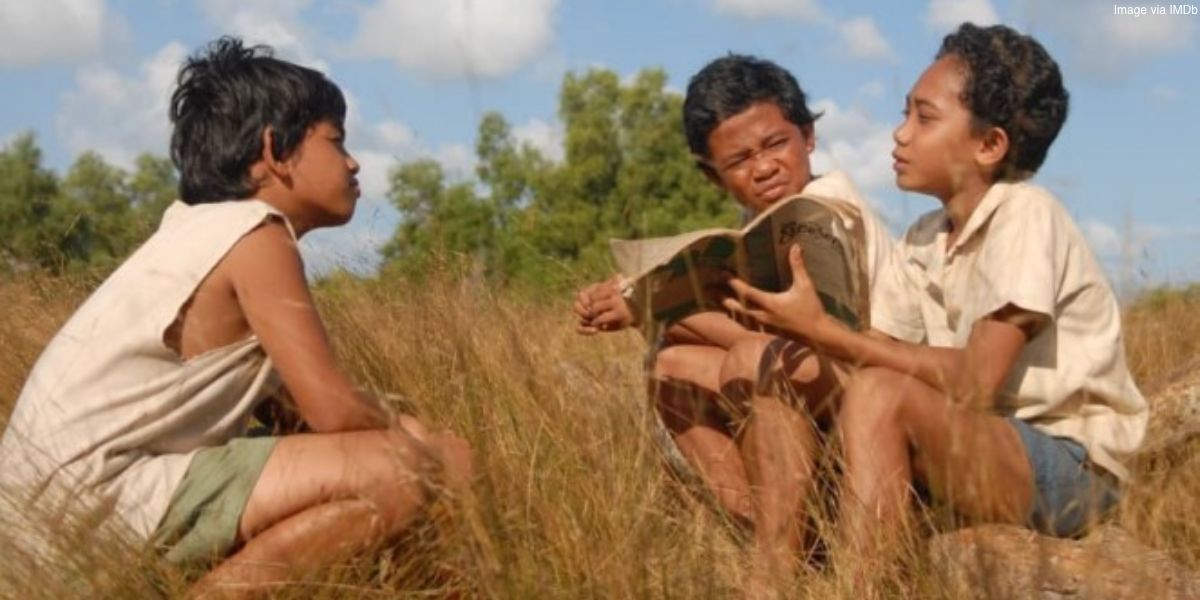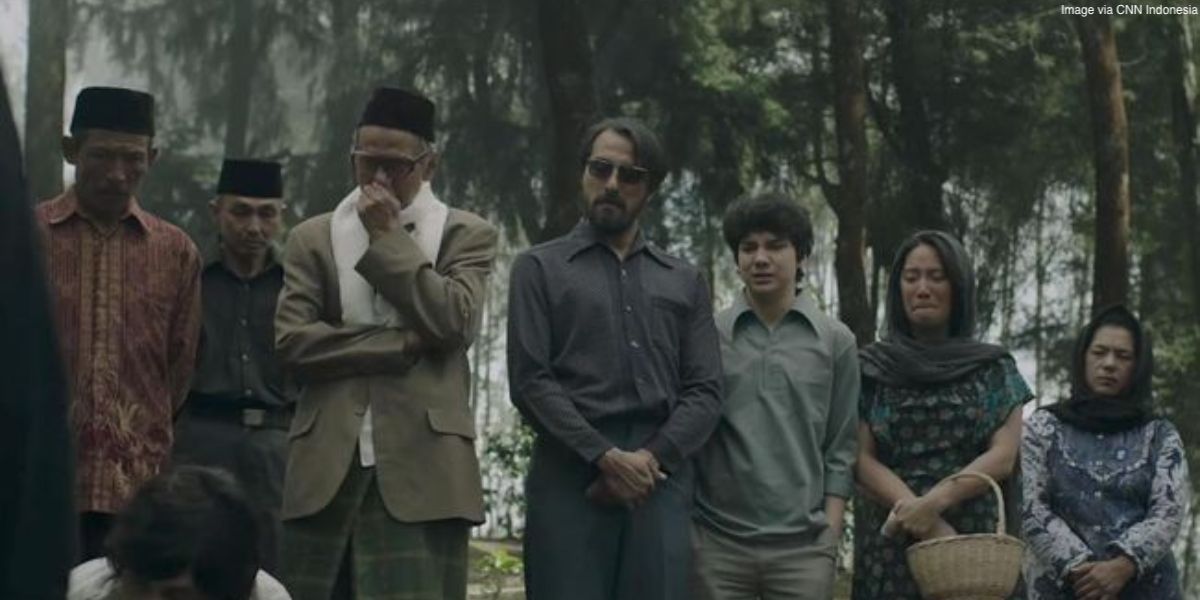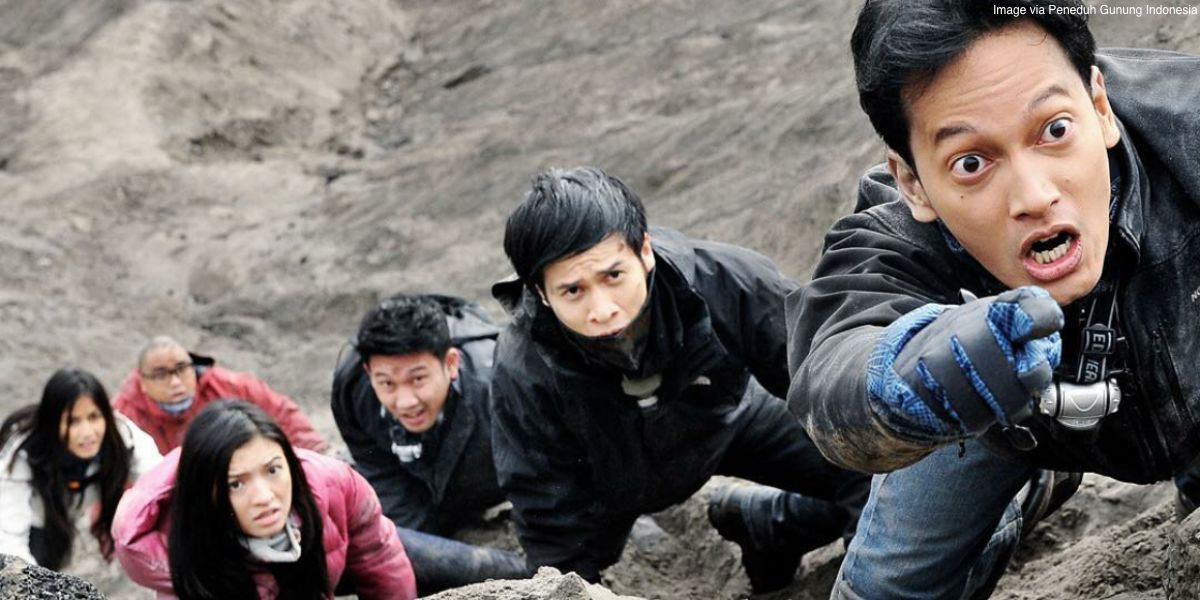For a long time, Hollywood and Bollywood have dominated the filmmaking industry. And although Hollywood has a wider reach worldwide, Bollywood takes the trophy in the annual production of movies and has a larger viewership. Countries such as Hong Kong have also earned a reputation for their cinema and are especially known for their martial arts movies. Nollywood, the Nigerian filming industry, has also become a prominent and more widely-known industry over the years.
South Korea has taken Asia by storm over the last decade and recently hit a worldwide reach with Squid Game and Parasite. However, Indonesia hasn’t seen much of the spotlight despite its prominent film industry and many award-worthy films.
‘The Night Comes for Us’ (2018)
The screenplay of The Night Comes for Us was originally adapted into a graphic novel before being released as a film later. It is also the first Indonesian film ever released by Netflix. The action thriller film follows the story of an enforcer, Ito (Joe Taslim), who has to go against the Six Seas Triad (Southeast Asian Triad), a group of enforcers he was once a part of. The film has received critical acclaim for its “intricate stunt work” and has since become a cult favorite outside Indonesia.
Many Indonesians felt that the film was too violent and depicted a negative side of the Indonesian underworld. As a result, the film did better overseas than in its home country. Other cast members include Iko Uwais, Julie Estelle, and Zack Lee have collaborated on other projects such as the acclaimed The Raid: Redemption and Headshot.
‘Photocopier’ (2021)
Photocopier, a crime mystery drama film, made its premiere at the 26th Busan International Film Festival in South Korea. A college student named Sur (Shenina Syawalita Cinnamon), along with other members of her college theater group, are invited to group leader Rama Soemarno’s (Giulio Parengkuan) house for a party.
https://www.youtube.com/watch?v=VbsTA-inEkc
Despite being warned by her strict father (Lukman Sardi) about alcohol consumption (as it is uncommon to consume alcohol in Indonesian culture), Sur chooses not to listen to her father’s advice. The day after the party, the whole campus tells her about the inappropriate selfies of her drinking, which she has no memory of taking. The photos cost Sur her scholarship and rights as a student on campus. Confused and in panic, Sur teams up with a photocopy worker to trace the events of the party to find out what happened at the party and the perpetrator behind the photos.
‘Kartini’ (2017)
Kartini is a biographical film based on the revolutionary Indonesian women’s emancipation heroine, Raden Adjeng Kartini. Born in 1879, Kartini (Dian Sastrowardoyo) grew up in an aristocratic Javanese family in the Dutch East Indies (present-day Indonesia) and attended a Dutch-language primary school. Despite a bar on women pursuing higher education, she later realized it was what she desired most.
She worked tirelessly towards her goals of fighting for women’s education and working rights, which earned her recognition as a women’s rights activist. Though the film wasn’t considered a commercial success due to low viewership, it still garnered a rating of 7.6/10 on IMDb.
‘Laskar Pelangi’ (2008)
Since its release in 2008, Laskar Pelangi has become a staple showcase of Indonesian cinema and a classic that has remained unbeaten. The story is set in Belitung, Sumatra, where most of the population lives in poverty, and the tin industry is the community's only source of economy. Two inspiring teachers, Bu Muslimah (Cut Mini Theo) and Pak Harfan (Ikranagara), teach at SD Muhammadiyah Gantong, a small school with no facilities, ten students, and three teaching staff.
Bu Muslimah and Pak Harfan relentlessly try to keep the school open by providing their students with the best education and reminding them not to give up on their dreams. The inspiring and heartwarming film became one of the highest-grossing films in Indonesian box office history and won various local and international awards.
‘Pengabdi Setan’ (2017)
Much of the Indonesian box office consists of horror movies as the Indonesian culture is very interested in stories revolving around mystery and horror. Iconic horror director Joko Anwar decides to remake the 1980 Pengabdi Setan film of the same name. Unable to receive financial support from the family, the mother of four, Mawarni Suworno (Ayu Laksmi), dies from an untreated illness.
After Mawarni’s funeral, however, strange things start to happen in the household where the rest of the family still lives, and a supernatural figure resembling their late mother haunts the family. Pengabdi Setan became the Indonesian horror film with the highest viewership at the end of any horror film screening in theaters.
‘5 cm’ (2012)
5 cm follows the journey of five friends, namely Genta (Fedi Nuril), Arial (Denny Sumargo), Zafran (Herjunot Ali), Riani (Raline Shah), and Ian (Igor Saykoji), who embark on a mission to climb the highest mountain in one of Indonesia’s main islands, Java.
During their hike, the friends of ten years with very distinct personalities overcome obstacles along the way and learn about who they are and the true meaning of friendship.
‘The Raid: Redemption’ (2012)
Though not Indonesian, Welsh filmmaker Gareth Evans introduced the Indonesian martial art of Pencak Silat into mainstream cinema through The Raid: Redemption, its sequel, The Raid 2, and his first Indonesian action-crime film Merantau. The Raid: Redemption received universal acclaim after being recognized for its unique approach to an action-martial art film.
When an elite team of commandos blows their cover to take down crime lord Tama (Ray Sahetapy), Tama takes the opportunity to offer sanctuary to the criminals living in his tower block in exchange for killing as many officers as they can. A rookie Indonesian officer, Rama (Iko Uwais), decides to lead the team through twenty floors of violent fighting against the criminals while simultaneously trying to stay alive to reach the top floor of the tower block where Tama is. The Guardian’s Peter Bradshaw described The Raid: Redemption as “This violent, intense and brilliant bullet fest from Indonesia puts western action movies to shame.” In an interview on The Late Show with Stephen Colbert, actor Samuel L. Jackson named it one of his favorite movies of all time.
‘Cek Toko Sebelah’ (2016)
Cek Toko Sebelah, which translates to check the store next door, is a comedy film released in 2016 that revolves around the reality faced by most of the ethnic Chinese population living in Indonesia. Despite being well-educated, many Chinese-Indonesians eventually work in their parents’ shops (or work in whatever the family business may be) instead of pursuing their dreams.
One of the writers (also the leading actor in the film) of Cek Toko Sebelah, Ernest Prakasa, is a multitalented Chinese-Indonesian comedian, stand-up performer, actor, director, and writer and often uses his ethnicity as the subject of his stand-up performances. The ethnic Chinese population is the largest ethnic majority group in Indonesia, and therefore the film serves to embrace the Chinese culture that exists in Indonesia.
‘Garuda di Dadaku’ (2009)
Garuda di Dadaku is a film based on the novel Dream of the Garuda by Benny Rhamdani. A thirteen-year-old boy named Bayu (Emir Mahira) dreams of becoming a soccer star and playing for the Indonesian Under 13 (U-13) national football team. Much to his grandfather Pak Usman's (Ikranagara) disapproval, Bayu never gives up on his dreams of becoming a professional footballer.
The classic Indonesian feel-good film serves as an inspiration for Indonesians who feel belittled by their ambition. A sequel to the film, Garuda di Dadaku 2, was made and released in 2011, just two years after the first film's release.
‘My Stupid Boss’ (2016)
My Stupid Boss is a comedy film based on a novel series by the author Chaos@work. The simple storyline and characters make My Stupid Boss easy to watch. Some of Indonesia’s most beloved and well-known actors, such as Reza Rahadian, who play the irritatingly weird boss (his character is called Bossman), and Bunga Citra Lestari, who plays the new administrator of the office, Diana.
Indonesian daily English-language newspaper The Jakarta Post included My Stupid Boss in their list of “5 most-watched Indonesian movies from the last decade”. A sequel to the film, My Stupid Boss 2, was released in 2019.











